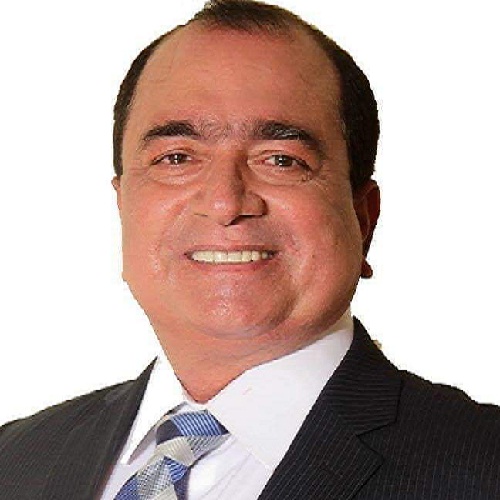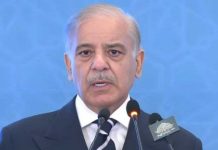Munir Ahmed
On the directions of Prime Minister Imran Khan, the chief minister Khyber Pakhtunkhwa (KP) has scrapped 300 licenses issued by the provincial mining department for power stone crushing in the province. The mining department had referred the case to the provincial environmental protection agency for examining the impact after civil society and environmentalists had shown strong resentment against the ill-initiative. The scribe had also written a piece on the rising stone crushing in Khyber Pakhtunkhwa and its impact titled “Stoning the environment to death”, published in Daily Times on June 24, 2021. It was well taken by the Special Assistant to Prime Minister (SAPM) Malik Amin Aslam by bringing it to the notice of the prime minister in the cabinet meeting. A detailed report was sought then. Mr. Malik put up the stone crushing licenses case in the cabinet meeting last Tuesday as well. Having known the severe implications on the environment, the Prime Minister directed the chief minister KP to immediately undo the licenses.
Thank you Malik Amin Aslam for some good work. The Sustainable Development Report 2020 has already declared Pakistan the first country complying with the Climate Action, the Sustainable Development Goal (SDG-13), ten years earlier than the target year 2030. The report was written by a group of authors led by Prof. Jeffrey Sachs, President of the Sustainable Development Solutions Network (SDSN). Published by Cambridge University Press. The annual independent publication outlines the performance of countries against the defined key indicators and parameters by the United Nations Development Programme (UNDP). After a long time, Pakistan is in the centre of the eye for good reasons. As SAPM in Pakistan, Malik Amin Aslam has changed the policy regime in the context of climate change and ecosystem conservation. Many federal initiatives are taking up final shape that would bring best climate smart practices in the region. They can be the role model policies and practices for South Asia and other countries across the map.
Not only in Pakistan, Malik Amin Aslam’s global contribution for ecosystem conservation and sincere efforts for implementation of UN Conventions and Treaties as the IUCN vice president has also been monumental. It has been well noticed by the IUCN member states, environmental and climate think tanks, non-governmental organizations, and civil society around the world. Malik is well described as one of the few leading global technocrats having relevant education, flair for action research, vigor for climate smart policy regimes for ecosystem conservation and restoration, and the management capacity for large and diverse initiatives.
The IUCN members will be having elections for their president next week. A much hyped propaganda campaign is run by the candidates who could not make a difference in their home countries, the United Arab Emirates (UAE) and the United States of America (USA). Malik Amin Aslam has been shy and very late to start communicating with the IUCN members about his monumental work in Pakistan and globally as the IUCN vice president. We can bet on his genuine and dedicated leadership and vigorous management skills. He has the passion to reignite IUCN to balance humans’ relationship with nature, push forward the nature based solutions, and to enhance IUCN’s global relevance.
Malik believes that ours is the generation which has witnessed the conservation challenge exponentially surge to the limits and, paradoxically, ours is also the generation which possesses the solutions, has an opportunity and probably the only chance, to correct this ongoing warpath with nature. IUCN, with its unique convening power and depth of scientific knowledge, was designed to lead this corrective conservation movement. However, while it has undeniably been the forging catalyst for global nature-based conservation it now critically needs to reignite – harnessing the collective passion, commitment and strengths of its membership. His vision is to ensure that IUCN continues to lead the conservation movement towards a world that truly values and sustainably conserves nature.
Over the years, the IUCN has lost its leadership role in research and conservation efforts. Many of its initiatives have died down while some other intergovernmental organizations have taken up the role the IUCN was envisaged and mandated to play. The core reasons have been numerous including weak leadership and absence of passion, knowledge and vigor, and zeal to fight with the mafias. The IUCN like intergovernmental organizations have turned to be the backyard dump of mostly retired and retarded “professionals” to fit and work with the governments.
Do we really need the IGOs behaving like maids and keeps of the governments? Surely not, so we shall globally support Malik Amin Aslam, as he envisioned, to regain and enhance global relevance of the IUCN’s science based knowledge power coupled with its unique convening power across divisive fault-lines, has to be more fully capitalized in order to regain its global influence; strategic governance focusing on the needs to rise from the micro to the macro level and so energized to deliver global directions and solutions. His approach to IUCN membership engagement and innovative financing could turn around the organization.
The writer is a freelance journalist and broadcaster, Director Devcom-Pakistan, an Islamabad-based policy advocacy and outreach think tank. He can be reached at [email protected] and tweets @EmmayeSyed

















